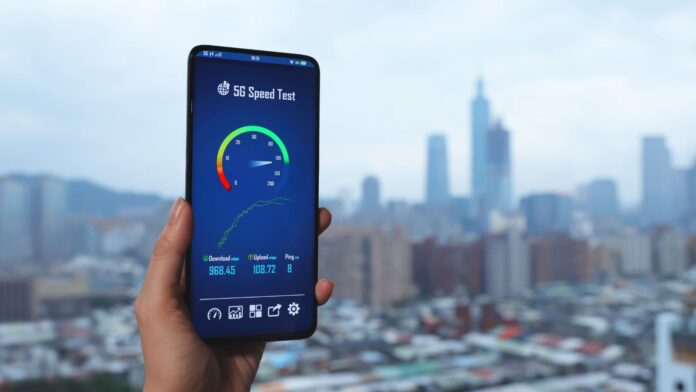Why Is Verizon Slow
If you’ve ever experienced slow internet speeds with Verizon, you may be wondering why this is the case. As an expert in the field, I can shed some light on the possible reasons behind Verizon’s slow connection. One major factor could be network congestion. With millions of users relying on Verizon’s network, especially during peak hours, it’s not uncommon for the network to become overloaded.
Another reason for slow speeds might be outdated infrastructure. While Verizon has been investing in improving its network infrastructure, there may still be areas where upgrades are needed. Older equipment and technology can limit the speed and capacity of the network, leading to slower internet connections.
Additionally, your location plays a crucial role in determining your internet speed with Verizon.
It’s important to note that these factors can vary depending on your specific location and circumstances. To get a more accurate understanding of why Verizon may be slow in your area, it’s best to contact their customer support or consult their coverage maps for any known issues or planned upgrades.

Understanding Verizon’s Network
When it comes to the question of why Verizon might be experiencing slow speeds, it’s important to delve into the intricacies of their network. Verizon is one of the largest telecommunications companies in the United States, offering both wireless and wired services to millions of customers. To understand why their network may be slow at times, we need to consider a few key factors.
Firstly, Verizon relies on a combination of technologies such as 4G LTE and 5G for wireless connectivity. While these technologies offer impressive speeds, there are various factors that can affect their performance. One such factor is network congestion. During peak usage hours or in densely populated areas, the sheer number of users connected to Verizon’s network can strain its capacity, leading to slower speeds for individual users.
Another aspect to consider is signal strength and coverage. Despite extensive infrastructure investments by Verizon, certain geographical areas may have weaker signals or limited coverage due to natural barriers or distance from cell towers. This can result in reduced speeds or even dropped connections for customers in those regions.
Additionally, network maintenance plays a crucial role in ensuring optimal performance. Like any complex system, regular maintenance and upgrades are necessary for maintaining speed and reliability. However, during periods when maintenance activities are being carried out, temporary disruptions or slowed speeds may occur.
While these factors contribute to potential slowdowns on Verizon’s network, it’s worth noting that individual user experiences can also vary based on device capabilities and settings. Older devices or those with outdated software may not be able to fully leverage the latest technologies offered by Verizon.
Factors That Can Affect Internet Speed
When it comes to internet speed, there are several factors that can influence the performance of your connection. Understanding these factors can help you troubleshoot slow internet speeds and potentially improve your overall browsing experience. Here are some key elements to consider:
- Network Congestion: One common reason for slow internet speed is network congestion. This occurs when many users in your area are simultaneously utilizing the same network resources, causing a slowdown in data transfer rates. During peak hours or in densely populated areas, such as apartment complexes or office buildings, you may experience slower speeds due to increased demand on the network.
- Distance from the Source: The distance between your device and the source of the internet signal can also impact speed. Generally, the farther away you are from the Wi-Fi router or cellular tower, the weaker your signal strength will be, leading to potential slowdowns in data transmission.
- Hardware Limitations: Outdated or inefficient hardware can significantly affect internet speed. If you’re using an older modem or router that doesn’t support higher speeds, it may bottleneck your connection and prevent you from accessing faster speeds offered by your service provider.
- Interference: Electronic devices and appliances operating on similar frequencies as your Wi-Fi signal can cause interference and disrupt wireless connectivity, leading to decreased speed and stability. Examples include cordless phones, microwave ovens, baby monitors, or even neighboring Wi-Fi networks operating on overlapping channels.
- Service Provider Throttling: Some internet service providers (ISPs) employ techniques like throttling to manage network traffic during periods of heavy usage. Throttling involves intentionally slowing down certain types of online activities like streaming video or file sharing to allocate bandwidth more evenly among users.
It’s important to note that while these factors can contribute to slower internet speeds, they may not always be within your control to change completely. However, understanding them can help you make informed decisions, such as choosing a different service provider or upgrading your hardware, to improve your internet speed.


